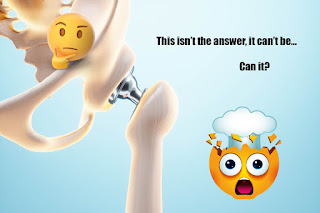Understanding the Different Types of Depression
Depression is not a one-size-fits-all diagnosis. It presents in a variety of forms, each with its own set of symptoms, triggers, and treatment approaches. Here's an overview of some of the most common types of depression:
1. **Major Depressive Disorder (MDD):** Also known as clinical depression, MDD is characterized by persistent feelings of sadness, hopelessness, and a lack of interest in activities that were once enjoyed. Physical symptoms such as changes in appetite or sleep can also occur. For a diagnosis of MDD, symptoms must be present most of the day, nearly every day for at least two weeks.
It was never disclosed to me what my diagnosis was completely. I am currently taking an antidepressant for depression and one other side effect. After my chemo over the course of 4 months, I became unable to think clearly and became irritable after 5 or 10 minutes of trying to figure anything out.
Somewhere in here is where I was diagnosed. I did have issues getting out of bed for months on end. I felt grief from not being the person I was. And the inability to do the lifting and mental challenges that I was so very good at for a few dozen years.
The help for me personally, what I was looking for, was
- Reduce my brain fog.
- Increase the speed of my ability to think.
- Return my ability to work on tasks that were unsolvable for hours on end.
2. **Persistent Depressive Disorder (PDD):** Formerly known as dysthymia, PDD is a chronic form of depression where symptoms persist for at least two years. While symptoms may not be as severe as MDD, the long-term nature of PDD can have a significant impact on quality of life.
I don't have personal experience with this form of depression.
3. **Bipolar Disorder:** This condition, previously known as manic-depressive illness, is characterized by periods of severe low moods (depression) and periods of extremely high, energetic or irritable moods (mania).
I don't have personal experience with this form of depression but have seen and known people who struggle with this type. Please ask for help if you are feeling depressed, or struggle with daily life.
Reference this online journal for the types of depression I am not familiar with: Benazzi, F. (2006). Various forms of depression - PMC. Dialogues in Clinical Neuroscience, 8(2), 151. https://www.ncbi.nlm.nih.gov/pmc/articles/PMC3181770/
These last 6 types, I can't comment on personally, but the information comes from my understanding after reading the medical journal just mentioned.
4. **Postpartum Depression (PPD):** This is a type of depression that can occur in women after giving birth. PPD is more severe than the "baby blues" and can include feelings of extreme sadness, anxiety, and exhaustion that can make it difficult for new mothers to perform daily care activities for themselves or others.
5. **Seasonal Affective Disorder (SAD):** This is a type of depression that's related to changes in seasons. SAD typically begins in the late fall and early winter and goes away during the spring and summer.
6. **Premenstrual Dysphoric Disorder (PMDD):** This disorder involves depression symptoms that occur during the week before a woman's menstrual cycle and usually improve once the period starts.
7. **Atypical Depression:** Atypical depression is a subtype of major depressive disorder that involves specific symptoms like an increased appetite or sleep, a heavy sensation in the limbs, and a sensitivity to rejection.
8. **Psychotic Depression:** This is a type of major depressive disorder that includes symptoms of psychosis, such as hallucinations, delusions, or paranoia.
9. **Situational Depression:** Also known as adjustment disorder with depressed mood, this type of depression is triggered by a specific life event or situation, such as the death of a loved one, a major life change, or trauma.
(Personal) While I was not diagnosed with this last type of depression, I can relate to this one. I lost the ability to bench hundreds of pounds, leg press almost 1000 pounds, and move vehicles just by pushing them. Not while parked, that would be silly. I was a monster of strength, and that was taken from me after losing 110 pounds during my fight with cancer. As was my mental clarity and ability to think.
Recognizing the various types of depression is crucial in understanding and treating this complex mental health disorder. It's important to remember that if you or someone you know is experiencing symptoms of depression, you should consult with a mental health professional for an accurate diagnosis and treatment plan. Depression is a serious condition that can have a significant impact on a person's life, but it is treatable, and many people with depression make a full recovery.

Comments